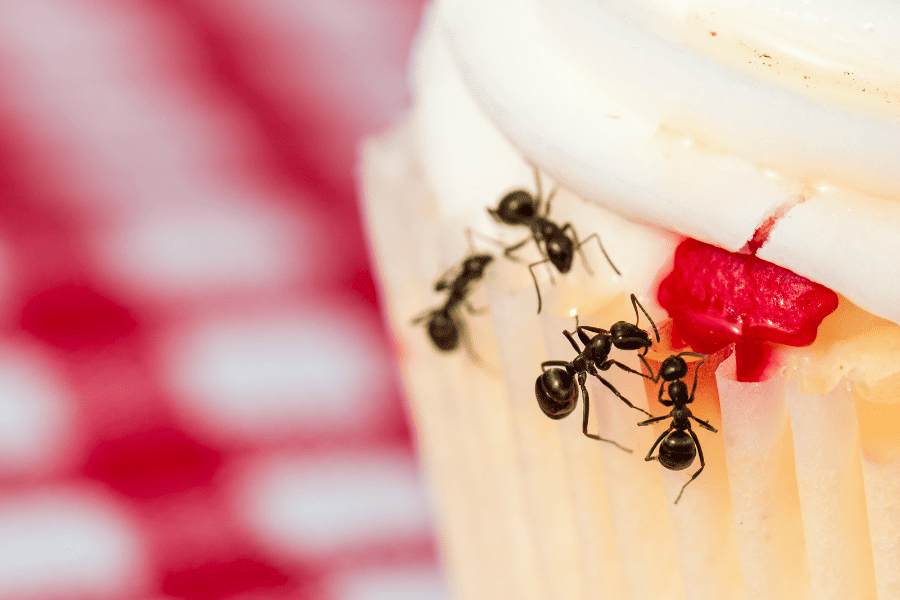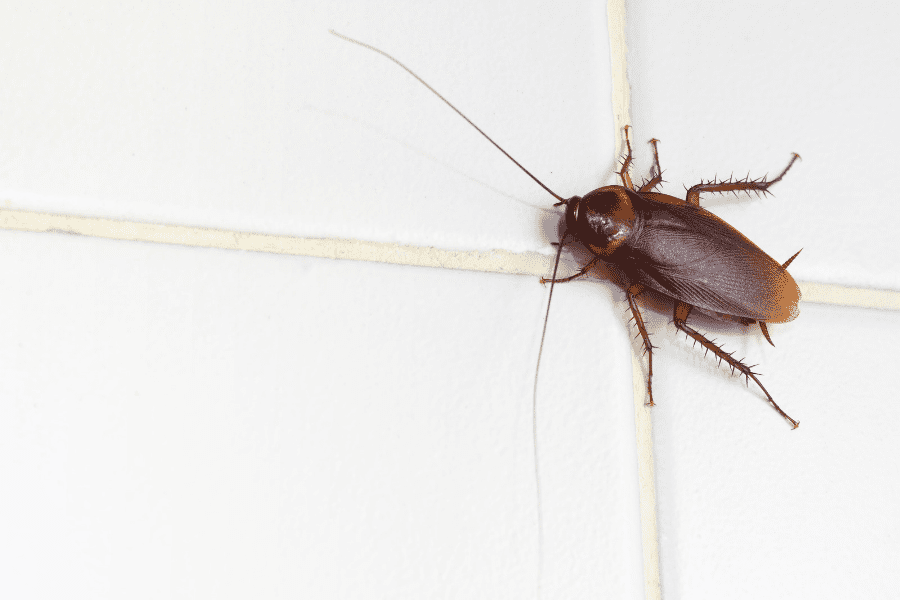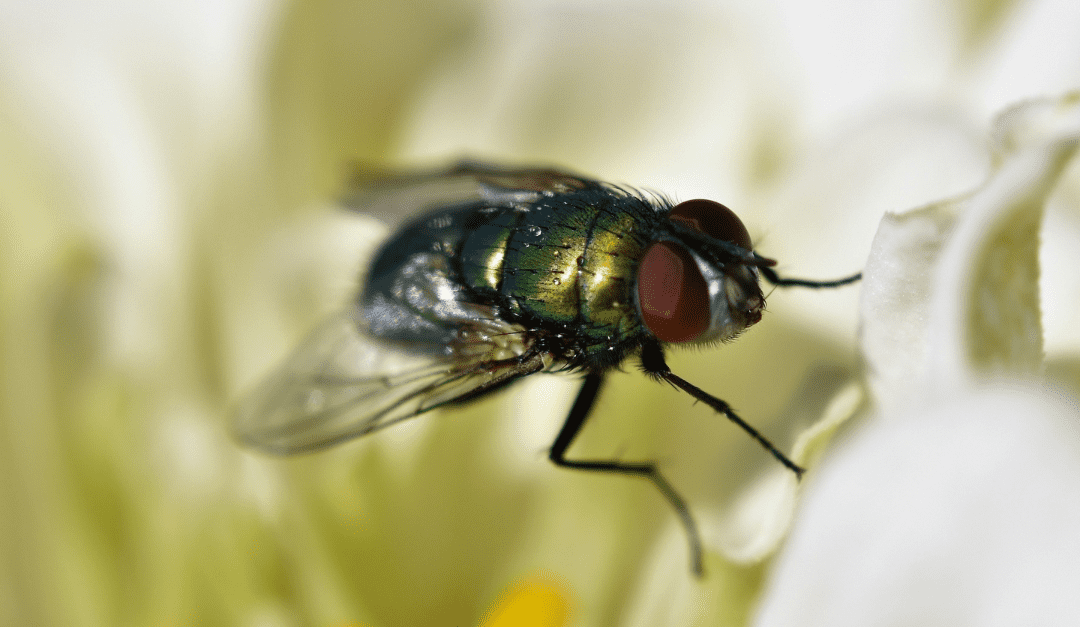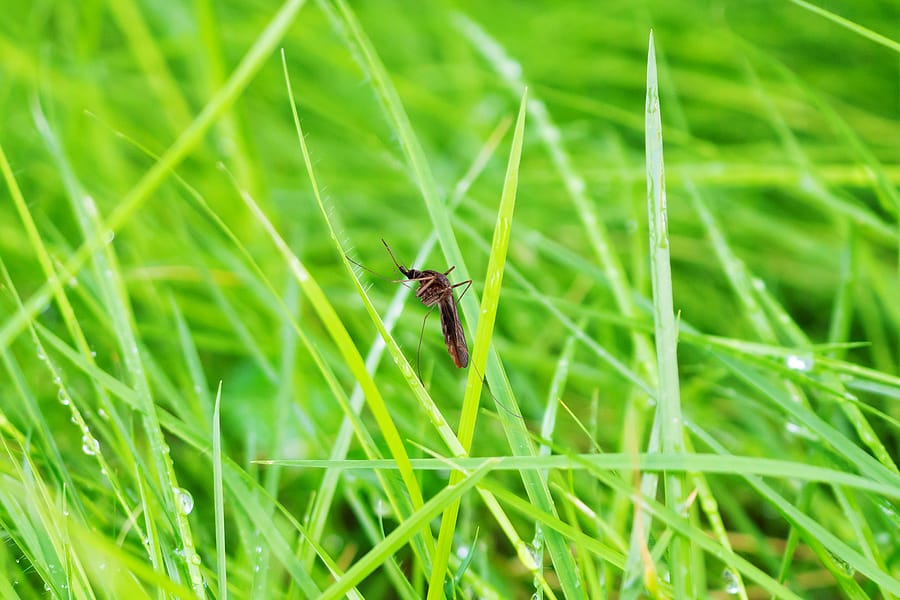READY TO GET STARTED?
REQUEST A FREE ESTIMATE
Fill out the form below or call (336) 226-1448 for a free, no-obligation estimate.
Being a pet owner in North Carolina means you’re probably familiar with the annoyance of fleas and ticks. These pesky pests can not only cause discomfort for your furry friends, but they can also transmit diseases to both pets and humans. Fortunately, there are steps you can take to keep fleas and ticks at bay. Here are some tips:

Ants are a common household pest that can quickly become a nuisance if they enter your kitchen or home. Not only are they a nuisance, but they can also contaminate your food and surfaces.
There are many different types of ants, but some of the most common ones found in kitchens include Argentine ants, carpenter ants, and odorous house ants. Argentine ants are small and brown, while carpenter ants are larger and can cause damage to wood structures. Odorous house ants are small and black and emit a strong odor when crushed.
Here are some quick and easy ways to prevent ants from entering your home:
The first step in preventing ants from entering your kitchen is to keep it clean. Ants are attracted to food crumbs and spills, so be sure to wipe down your countertops and sweep or vacuum your floors regularly. Don’t leave dirty dishes in the sink overnight, as this can also attract ants.
Ants can easily access food that is left out in the open, so be sure to store your food properly. Keep your food in airtight containers, and store sweet or sticky foods such as honey and syrup in the refrigerator. Clean up any spills or crumbs immediately to avoid attracting ants.
Ants can enter your home through small cracks and gaps in your walls, floors, and windows. To prevent ants from entering your kitchen, seal any entry points using caulk or weather stripping.
There are several natural remedies that can help deter ants from entering your kitchen. Consider sprinkling cinnamon or cayenne pepper around the perimeter of your kitchen to repel ants. You can also use vinegar or lemon juice to wipe down your countertops and floors, as the acidic scent will deter ants.
If you have tried these do-it-yourself methods and still have an ant infestation in your kitchen, it may be time to call your local professional pest control company. These professionals can identify the source of the infestation and use safe and effective methods to eliminate ants from your home.

Cockroaches are one of the most common household pests found in homes. They are known for their hardiness and ability to survive in a variety of environments, making them difficult to get rid of once they’ve invaded your home. Let’s take a look at some of the most common types of cockroaches found in our area.

Flies are one of the most common pests found in homes. They are not only annoying but can also carry harmful bacteria and diseases. Fortunately, there are several things you can do to prevent them from entering your home in the first place. Let’s discuss three different types of flies you might find in your North Carolina home and some tips on how to prevent them.
House flies are the most common type of fly found in homes, hence the name. These pests are typically gray in color and measure around 1/4 inch in length. They are attracted to rotting food, garbage, and other organic waste, and they can carry diseases like salmonella and E. coli.
To prevent house flies from entering your home, it’s important to keep your kitchen and living areas clean and free of food waste. Keep your garbage cans tightly sealed and dispose of trash regularly. Make sure to clean up any spills or crumbs immediately and avoid leaving food out on counters or tables.
Fruit flies are small, brownish-yellow flies that measure around 1/8 inch in length. They are commonly found in kitchens and are attracted to ripe or rotting fruit and vegetables. These pests are not harmful to humans, but they can be very annoying.
To prevent fruit flies from infesting your home, it’s important to keep your fruit and vegetables stored in the refrigerator or in sealed containers. Be sure to dispose of any overripe or rotting produce and keep your kitchen clean and free of spills and crumbs.
Drain flies, also known as moth flies, are small, black flies that measure around 1/8 inch in length. They are commonly found in bathrooms and kitchens, and they are attracted to damp, organic matter like hair, soap, and grease. Drain flies can carry harmful bacteria, so it’s important to get rid of them as soon as possible.
To prevent drain flies from taking over your home, it’s important to keep your drains clean and clear. You can do this by pouring a mixture of baking soda and vinegar down your drains, followed by hot water. Avoid pouring grease or oil down your drains, and fix any leaks or drips that may be contributing to excess moisture.
If you begin to notice flies in your home, be sure to take action quickly to get rid of them by calling your local pest control company for a free inspection.

Spring is a time for renewal and growth, but unfortunately, it’s also a time for pests to emerge from their winter hiding spots and wreak havoc on homes and gardens. North Carolina, with its warm and humid climate, is particularly susceptible to pests during spring. Here are some of the most common spring pests homeowners in North Carolina may experience, along with tips on how to prevent and control them.
Termites are a serious problem in the south, and spring is the time when they start swarming in search of new nesting sites. Termites can cause extensive damage to the structure of homes, and if left untreated, can lead to costly repairs. Homeowners should be on the lookout for signs of termite infestations, such as mud tubes, discarded wings, and wood damage. To prevent termite infestations, homeowners should remove any wood debris or stumps near their homes, repair any water leaks or moisture problems, and have regular inspections by a licensed pest control professional.
Ants are another common spring pest in this area. They are attracted to food, water, and shelter and can quickly become a nuisance in homes and gardens. Ants can also cause damage to plants and can even bite humans and pets. Homeowners can prevent ant infestations by keeping their homes clean and free of food debris, sealing cracks and crevices, and trimming plants away from the home’s foundation.
Mosquitoes thrive in warm, humid environments, making the south an ideal location for them to breed. Mosquitoes can transmit diseases such as the West Nile virus and Zika virus, making them a serious health concern. Homeowners can prevent mosquito infestations by removing any standing water around their property, such as in bird baths or clogged gutters. In addition, homeowners can install screens on doors and windows to prevent mosquitoes from entering the home.
Ticks are another common spring pest. They are often found in wooded areas and can transmit diseases such as Lyme disease and Rocky Mountain spotted fever. Homeowners should take steps to prevent tick bites by wearing long-sleeved clothing, using insect repellent, and avoiding tall grass and brush. In addition, homeowners can keep their yards free of debris and trim back any overgrown vegetation to reduce the likelihood of tick infestations.
Cockroaches are a year-round problem, but they become more prevalent in the spring as the weather warms up. Cockroaches can contaminate food, trigger asthma and allergy symptoms, and transmit diseases. Homeowners can prevent cockroach infestations by keeping their homes clean and free of food debris, sealing any cracks or crevices, and reducing humidity levels.
By working with your local pest control company and taking proactive measures, you can protect your home and family from these common spring pests.

With the holidays here, it’s time to take all the decorations out of storage and make the house jolly again! Hopefully, you aren’t discovering pests in your storage of choice. There are some ways to ensure that pests cannot get a hold of your holiday decorations; let’s break it down:
Enjoy a pest-free holiday season with these easy DIY pest control tips. If the problem is bigger than you can handle, be sure to reach out to your local pest control company, and they will be able to provide a free inspection.